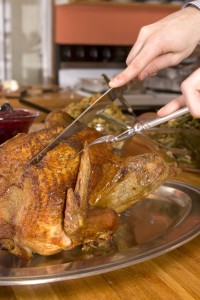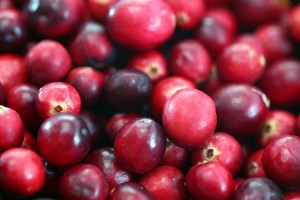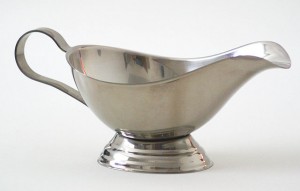 May 1, 2015
May 1, 2015
By Alia Knight
Writer/News Assistant
Healthy Living
Photos courtesy of Wikimedia Commons
The arrival of the holiday season seems like the perfect excuse to indulge in sugary snacks and fatty foods. After all, who has not plucked a candy cane from the Christmas tree to stir some hot chocolate? Would Christmas be complete without a slice of pumpkin pie or frosted sugar cookies?
The fact is that all of these foods can ultimately have a significantly detrimental effect on one’s health and waistline, especially if diet is already a concern. One cup of eggnog packs a total of eleven grams of saturated fat, more than half the recommended daily intake, and 150 milligrams of cholesterol, again about fifty percent of the amount advised by nutrition experts. One slice of that delicious apple pie can contain as much as 400 calories.

Fortunately, there are plenty of healthy and nutritious alternatives to such foods, as well as variations on methods of cooking traditional holiday foods to make them more health-friendly. There is also a sizable list of holiday favorites which are beneficial on their own.
Turkey — for many, the centerpiece of the Christmas dinner table — is an excellent source of protein and other nutrients, such as vitamin B, zinc, and potassium. Another benefit is that turkey makes diners feel full with fewer bites. When eating turkey, peel off the skin and stick to white meat to save hundreds of calories.
Sweet potatoes can be another delightful addition to the holiday menu, as long as they are roasted and not slathered with butter, marshmallow, or other high fat or sugar condiments. If prepared correctly, sweet potatoes can be an abundant source of fiber, vitamin A, potassium, and phytochemicals.
 Cranberries are a holiday favorite that provide a tremendous wealth of antioxidants and fiber. However, these yuletide berries are often corrupted by recipes calling for large doses of sugar. Ration the amount of sugar used to season cranberries or search for a substitute sweetener. Another red fruit bursting with antioxidants is the pomegranate. Pomegranate seeds are healthy and contain more natural sugar than cranberries.
Cranberries are a holiday favorite that provide a tremendous wealth of antioxidants and fiber. However, these yuletide berries are often corrupted by recipes calling for large doses of sugar. Ration the amount of sugar used to season cranberries or search for a substitute sweetener. Another red fruit bursting with antioxidants is the pomegranate. Pomegranate seeds are healthy and contain more natural sugar than cranberries.
Stuffing, another holiday dinner staple, has a reputation for being fattening. While this is certainly true for some recipes, do not count this classic holiday dish out so quickly. Use low-sodium chicken broth instead of butter to make the dish moist, and fill it with ingredients like nuts, berries, and celery. These changes will help to keep it low in fat, yet just as delicious.
Much of the harm of holiday food comes from what we put on it as opposed to the food itself. One very flavorful addition that can be sprinkled onto many dishes is pecans. Never mind using them for pies; sprinkle some on greens and salads, mix them into stuffing, or simply roast and eat them by themselves. Pecans are high in fiber and an excellent source of good fats. Other healthy seasonings that are also quite festive are cinnamon and nutmeg. More and more research shows that these age-old spices, perfect for the holiday spirit and especially for Christmas cooking, can actually lower cholesterol and maintain stable insulin levels in the blood.
 No Christmas dinner would be complete without a warm and hearty boat of gravy. Unfortunately, this condiment—companion to almost everything on the Christmas dinner table—tends to be high in fat and even higher in sodium, especially coming from the store. Making it at home provides an opportunity to save on calories and add an unexpected twist to the meal. Use low-sodium broth or a homemade stock of turkey giblets and neck for the base. While boiling the liquid, add in lots of vegetables and herbs like celery and thyme. Pour in some lemon juice or apple cider to add a little tartness before thickening it with flour.
No Christmas dinner would be complete without a warm and hearty boat of gravy. Unfortunately, this condiment—companion to almost everything on the Christmas dinner table—tends to be high in fat and even higher in sodium, especially coming from the store. Making it at home provides an opportunity to save on calories and add an unexpected twist to the meal. Use low-sodium broth or a homemade stock of turkey giblets and neck for the base. While boiling the liquid, add in lots of vegetables and herbs like celery and thyme. Pour in some lemon juice or apple cider to add a little tartness before thickening it with flour.
The holidays are a time to remember what is most important to us. With mindful, yet delicious recipes such as these, you can remind yourself and those close to you that you are thankful for your health first and the food secondly.




